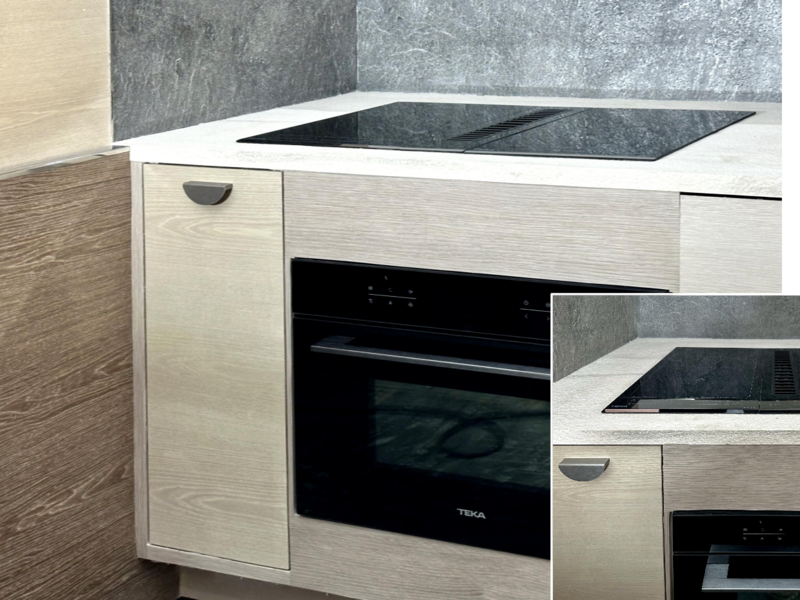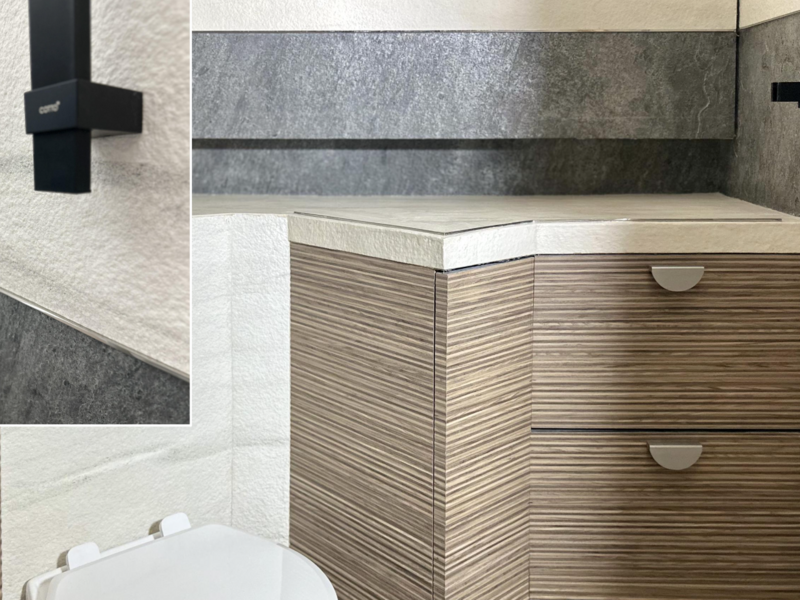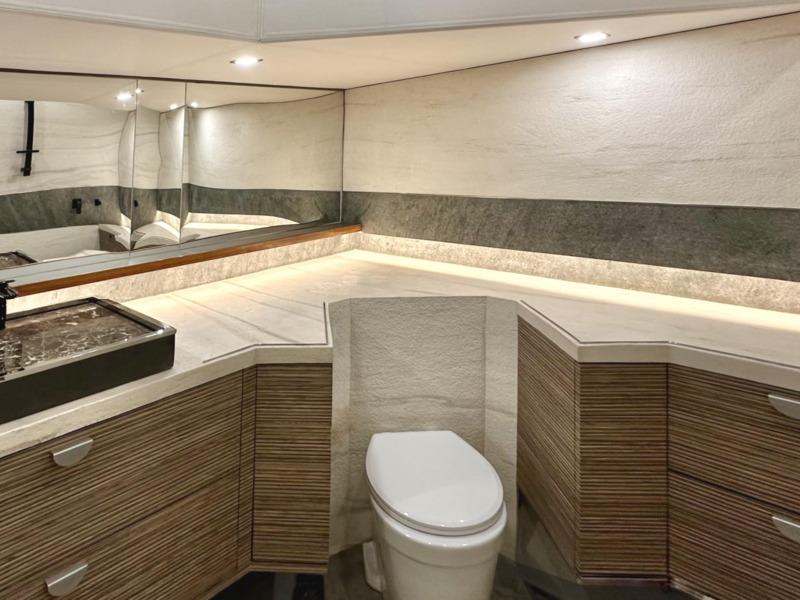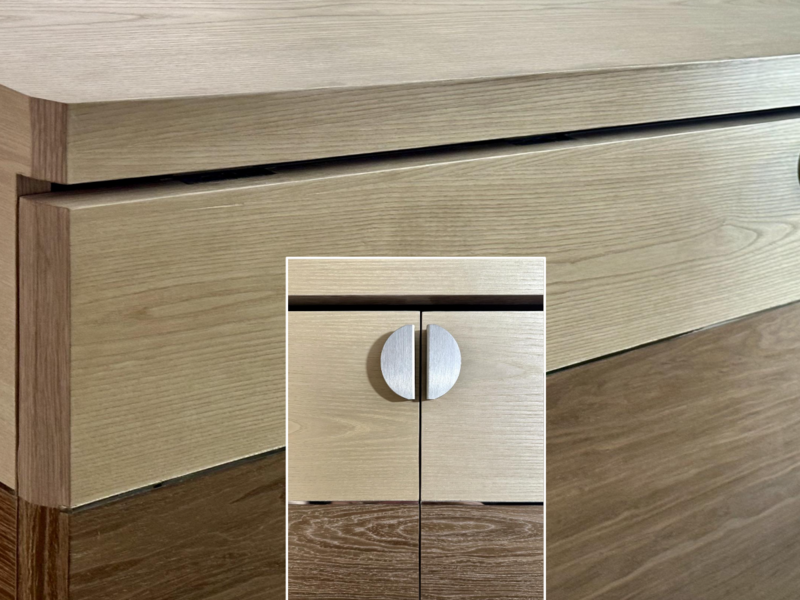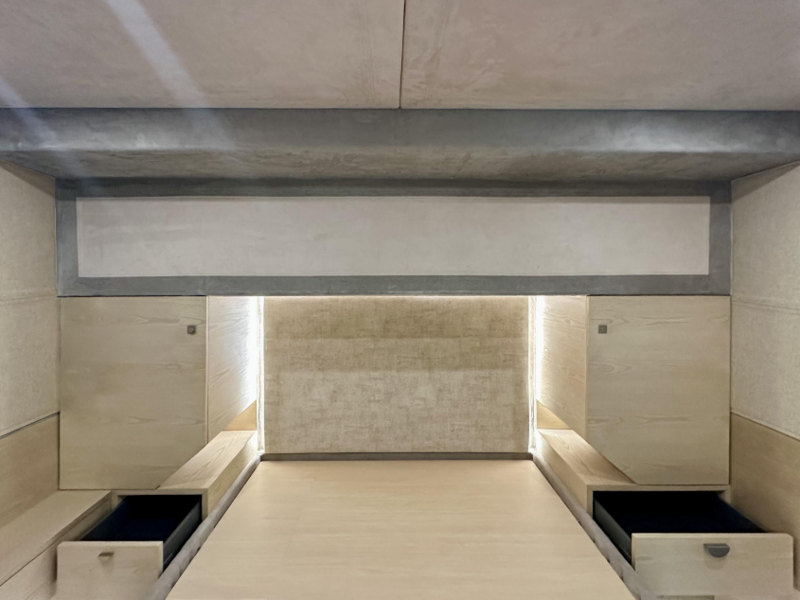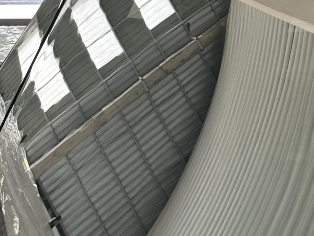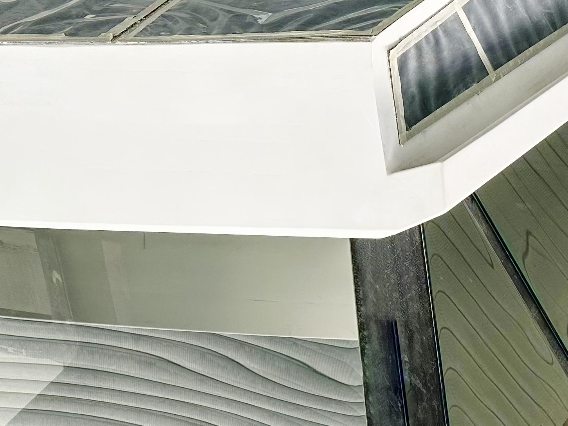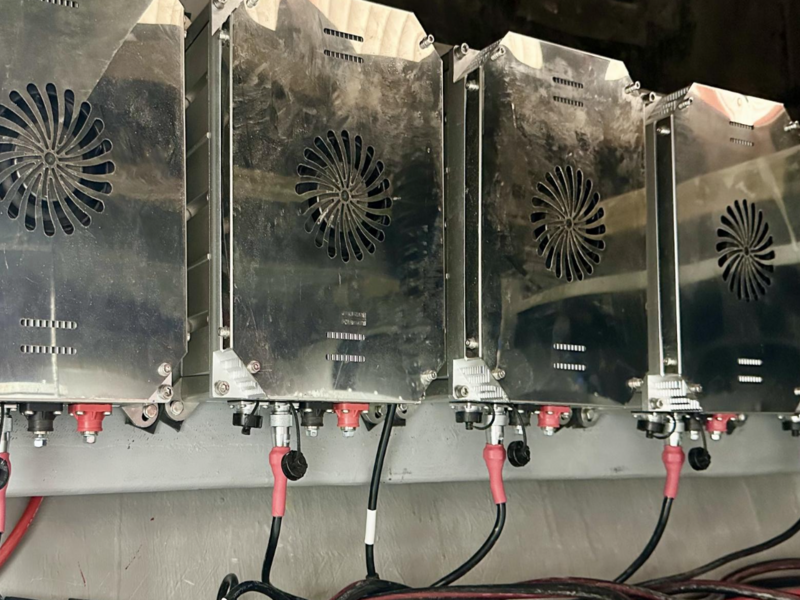GR63 Eco-Catamaran: Revolutionizing sustainable luxury.
After many months, even years, of meticulous planning, design and development, the final phase of construction and commissioning of the GR63 eco-catamaran is now underway. A true milestone in marine innovation, this project is moving from speculation to reality. It offers a vessel that redefines what is possible in the marine leisure sector.
While many people talk about what will happen "in the future", the GR63 exists now. It's designed and built, not just theorized. It's a fully realized example of next-generation sustainable boating: zero-emission, all-electric and luxuriously uncompromising.
The GR63 is the fruit of a true engineering collaboration. It was born of an idea, brought to life by two engineers working closely together to push back the boundaries. From conception to launch, every element of the vessel has been carefully crafted. The result is a unique construction method combined with an electrical system that surpasses anything previously achieved on a vessel of this size.
"There have been challenges along the way," says designer-builder Gilles Reigner. "But innovation rarely takes the easy road. What we've built isn't just a yacht. It's proof that the emission-free ocean is no longer a dream. It's a reality."
He continues: "GR63 is more than a ship. It's a statement. A testament to how luxury and sustainability can coexist in harmony. Our mission is to offer freedom, comfort and responsibility at sea, while ensuring that our oceans and natural resources are protected for future generations."
Intelligent energy. Autonomy.
One of the GR63's flagship innovations is its AI-based Energy Management System (EMS), an intelligent control platform that monitors, forecasts and optimizes energy flows across the ship in real time.
- The system balances solar, wind, battery and fuel cell energy inputs according to environmental conditions and energy demand.
- Adaptive load prioritization ensures that host systems, propulsion and air conditioning operate smoothly while maximizing energy efficiency.
- Predictive algorithms dynamically adjust energy use to maintain autonomy, even in changing weather conditions or on extended trips.
"This project has pushed the boundaries of what is possible in marine electrification," said Ricky Cole, Technical Director at ePropulsion. "The GR63's electrical system sets a new benchmark. Not only in terms of integration and range, but also in its ability to deliver real-world performance that supports long-range, emissions-free operation. This is what the future of boating should look like, and we're proud to have helped make it real."

The Energy cabinet
A new benchmark for sustainability and autonomy
The 19.2-meter GR63 catamaran is designed for total energy autonomy, combining state-of-the-art renewable energy systems with advanced materials and bold modern design. It includes:
- Two 110 kW electric motors, powered by 284 kWh LiFePO4 batteries
- High-efficiency solar panels, rated at 12 kWp. In a sun-rich location like Thailand, where the average solar yield exceeds 5.5 hours of maximum sunshine per day, these panels could realistically generate over 66 kWh of energy per day.
- Vertical-axis wind turbines generating a total of 10 kW
- Transparent solar glass and a solar canopy, both generating energy without compromising form or function
- Methanol fuel cells, providing 2 × 15 kW of clean, silent backup power

560VDC batteries bank
Innovative construction for performance and efficiency
The GR63's performance begins at the heart of its design, thanks to a bold materials strategy. The catamaran's hull and structure are built from a high-performance composite of basalt and aramid fibers. This combination was chosen for its exceptional strength-to-weight ratio.
Main deck glazing: high reflectivity, low emissivity glass Some chargers MPPT

The Nest glazing: Electricity production and low emissivity glass
Sustainable luxury. Designed with expertise.
On board, the GR63 combines advanced technology with quiet comfort. Air conditioning is provided by a bespoke system of high-efficiency inverter air conditioners, featuring quiet DC motors and titanium heat exchangers. The result is a quiet, energy-efficient environment that adapts effortlessly to external conditions. Every journey is as comfortable as it is efficient.
In addition, a dedicated hydroponics area allows guests to enjoy a selection of fresh vegetables grown directly on board. This on-board garden not only offers incomparable flavor and nutritional value, but also reflects the ship's ethos of self-sufficiency and low-impact living at sea.
CE Class A - Ocean certified, the GR63 is ready for serious ocean crossings. Inside, sustainable comfort meets modern luxury. She features advanced air conditioning using inverter-driven DC systems, onboard hydroponics for fresh food at sea, and a striking interior designed to combine performance and pleasure.
The GR63 is neither a concept nor a prototype. It's a fully-built vessel that proves that sustainable luxury boating is not only viable, but already a reality. With unrivalled energy independence, state-of-the-art systems and refined craftsmanship, she's ready to set a new benchmark for the entire industry.
A subsequent press release will mark the vessel's official launch on the water in the coming months. This revolutionary catamaran will begin its journey as a true pioneer on the emission-free ocean.
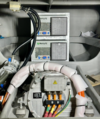
110 kWh and fuel Cell
About Gilles Reigner
Gilles Reigner is a yacht designer and builder renowned for defying convention and proposing concrete solutions to maritime sustainability. Based in Hua Hin, Thailand, he has forged a reputation for combining precision engineering with eco-friendly design.

About ePropulsion
ePropulsion is a world leader in marine electric propulsion systems, recognized for its in-house design, engineering excellence and commitment to clean technologies. Serving the commercial and leisure markets, ePropulsion offers integrated systems tailored to performance, compliance and sustainability.


